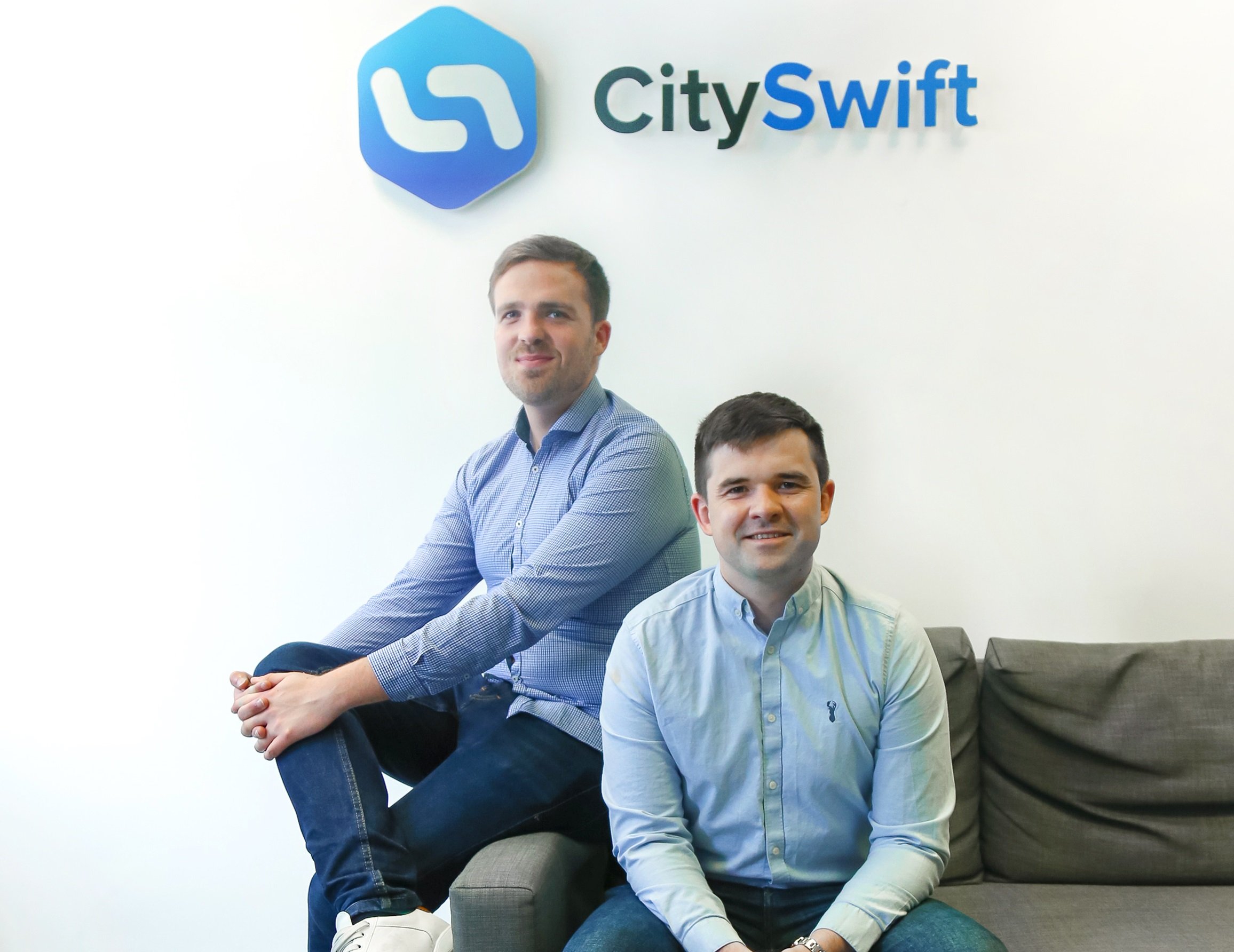With lockdowns gradually easing around Europe, public transport is facing a particularly tricky challenge. Buses, trams and trains are often jam-packed at peak times as people make their way to and from work. In the era of social distancing, this simply can’t be the case; at least not for long.
Irish startup CitySwift knows the challenges that bus operators face all too well. The Galway-based startup develops a platform that uses AI to manage fleet operations and optimise times.
Now, it’s gearing up to roll out a new product that assists bus companies in managing on-board capacity and social distancing.
The startup, founded by Brian O’Rourke and Alan Farrelly, has just raised a fresh round of €2 million to expand further in the UK and eventually in mainland Europe. Investors in the round include Irelandia Investments, the firm of Ryanair co-founder Declan Ryan, and Act Venture Capital. It previously raised €1.5 million.
CitySwift’s SaaS platform is used by the likes of bus companies and public transport agencies on city and commuter bus lines, which operate large fleets throughout the day. The startup is currently working with two large operators in the UK, National Express West Midlands and Go-Ahead Group.
“When Covid hit, massive changes and fluctuations happened within public transport and the bus industry specifically that it had never seen before,” O’Rourke explained.
Most recently CitySwift developed a new tool for its platform that helps manage capacity. It is a white-label solution for bus operators that allows them to a create customer-facing feature for passengers to check capacity of buses in real-time based on travel patterns and predictive analysis.
It will show passengers what busses have space and at which bus stop. This helps passengers plan their journeys more accurately during a time when buses can only have around 20% capacity in their vehicles. At the same time, operators can deploy more or fewer buses on certain routes with the real-time data to hand.
When Covid-19 grinded cities to a halt, public transport, and bus services specifically, saw significant fluctuations as commuters stayed at home while essential workers and healthcare staff continued to need public transport.
Together with the guidelines for social distancing and greatly limiting the capacity of buses, O’Rourke said bus companies needed access to data fast.
“Bus companies traditionally would have worked off monthly management accounts so they would be 30 days behind, they would have looked at their numbers, their figures and then made decisions about what they should do,” O’Rourke told tech.eu.
“Obviously with how quick things were changing with Covid and public transport, they needed this information a lot quicker. We can give it in real time and we were already hooked into all the data sources and systems they use.”
With its new funding in tow, CitySwift will be concentrating on further growth in the UK and further afield in Europe. It has pilots in places in Germany and Portugal and talks under way in Spain and France. Meanwhile it will be adding 20 new roles to its team – both in Galway and remotely – in product development and customer support.
O’Rourke said that Covid-19 has led to a wave of interest from new and existing clients that needed help.
“Our solution is very unique within the public transport industry. Before CitySwift came along, the bus companies and public transport authorities wouldn’t have been utilising the data that they were generating like we have.”
It won’t be alone as the public transport sector further acknowledges the importance of data and analytics to its operations in the ‘new normal’.
Most recently Uber renewed its push to work with public transit in the US by selling software to city agencies. It signed its first SaaS deal with the Transportation Authority of Marin in the San Francisco Bay Area earlier this month.
“There definitely is a need to make public transport options more dynamic,” O’Rourke added, “and a lot more responsive to what’s going on in real-time and make it data driven.”



Would you like to write the first comment?
Login to post comments